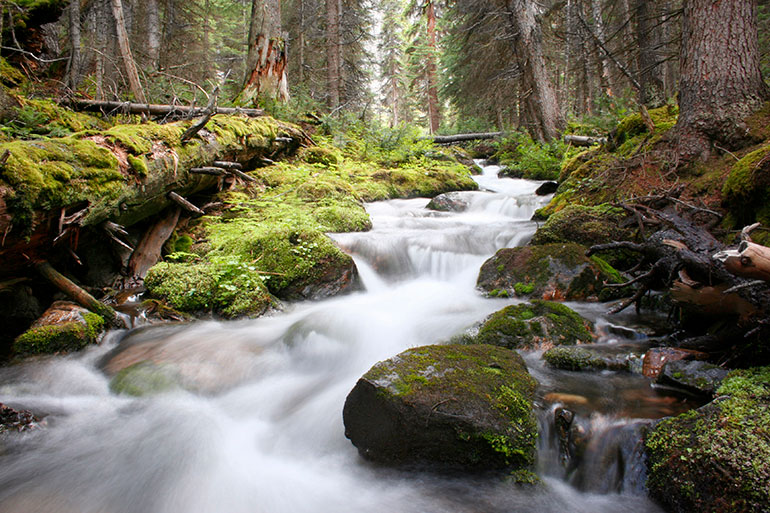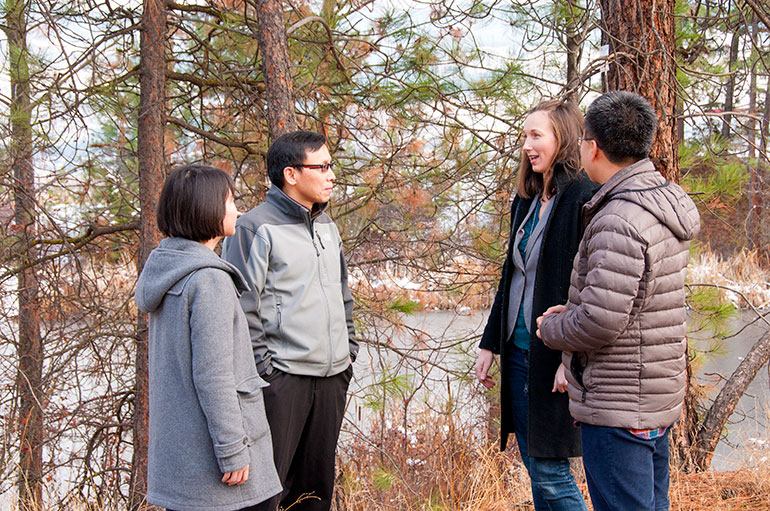
UBC research shows both forest vegetation and climate change have an impact on water supply
Freshwater resources are critical to both human civilization and natural ecosystems, but UBC researchers have discovered that changes to ground vegetation can have as much of an impact on global water resources as climate change.
UBC Okanagan Earth, Environmental and Geographic Sciences Professor Adam Wei, PhD candidate Qiang Li and researchers from the Chinese Academy of Forestry recently published a study examining the impacts of how changes in forest vegetation effect water supplies. Using several decades worth of data, their work examined how water resources are responsive to vegetation ground cover and climate change.
“As we urbanize land and continue to convert forests for other uses, our water regimes change,” says Wei. “We end up with the systems we do not design for, and entire watersheds are being affected.”
Forested areas are critically important water resources, explains Li. But as land is developed or the green vegetation is destroyed, watersheds are irreversibly damaged.
“We need to recognize the importance of vegetation,” says Li. “Forest cover is an important element and we need to keep this in mind for the future. Scientists talk about how climate change affects water when they measure global warming. We’re suggesting they also need to keep an eye on forest vegetation. It’s a key indicator of the health of our water resources.”
Forests cover more than 30 per cent of the world’s land surface and Li says about 21 per cent of the global population directly depends on these catchments for their water supply. Using computer modelling, the researchers examined historical data from 2000 to 2011. They looked at changes in land vegetation and annual water yield in boreal and tropical forests in locations such as British Columbia, Canada, Russia, Brazil, Finland and the Democratic Republic of the Congo. Along with development, intensive forest logging, fire, and insect infestation were reasons for forest and ground vegetation loss.
“Our simulations show that the average global alteration in annual water flow due to vegetation change is as high as 31 per cent. Our results also show that on average, in 51 per cent of the study area, vegetation change and climate change operate together and can lead to either fewer water resources, meaning higher chances of drought, or an increase in water supply and higher chances of devastating floods.”
These findings have far-reaching implications for assessing and managing future global water resources, says Wei.
“Our watersheds and landscapes are experiencing significant pressures from vegetation or land cover change and climate change,” he adds. “Because vegetation change and climate change play a similar role in water resources change, ignoring either one will likely lead to an incomplete understanding and ineffective management of our future water resources, particularly for the regions where intensive forest change occurs.”
Future water resource assessment must, he says, consider both climate and vegetation or land cover change, and our management paradigm should be shifted from “adapting and mitigating climate change impacts” to “managing both climate and land cover change together.”
This research was recently published in Global Change Biology and was partially funded by grants from the Natural Sciences and Engineering Research Council of Canada, Research Program for Public-welfare Forestry and the National Natural Science Foundation of China.

UBC researchers (from left to right) Abby Wang, Professor Adam Wei, Krysta Giles-Hansen and Qiang Li discuss the role forest vegetation plays while monitoring water resources.